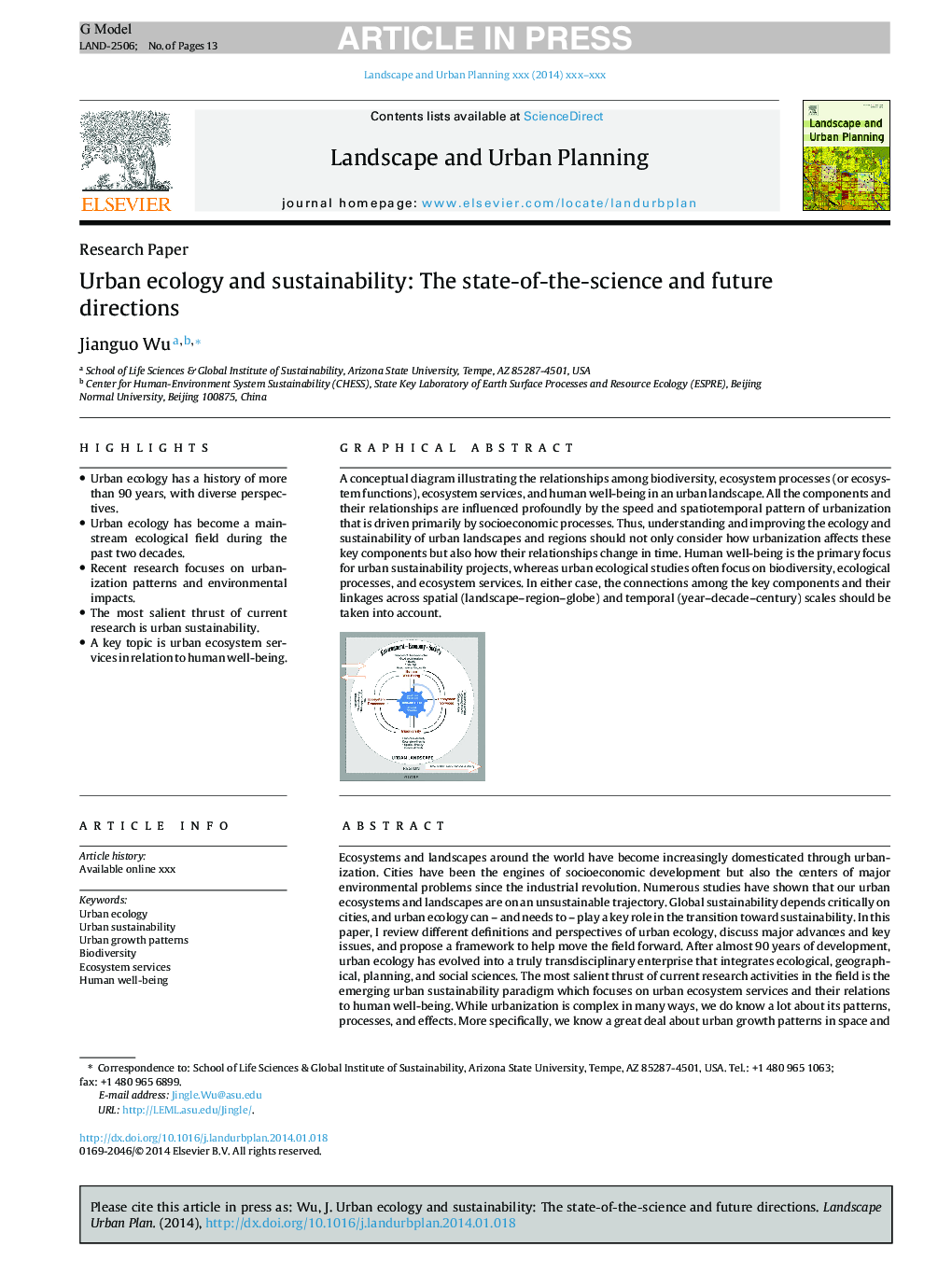| Article ID | Journal | Published Year | Pages | File Type |
|---|---|---|---|---|
| 7461595 | Landscape and Urban Planning | 2014 | 13 Pages |
Abstract
A conceptual diagram illustrating the relationships among biodiversity, ecosystem processes (or ecosystem functions), ecosystem services, and human well-being in an urban landscape. All the components and their relationships are influenced profoundly by the speed and spatiotemporal pattern of urbanization that is driven primarily by socioeconomic processes. Thus, understanding and improving the ecology and sustainability of urban landscapes and regions should not only consider how urbanization affects these key components but also how their relationships change in time. Human well-being is the primary focus for urban sustainability projects, whereas urban ecological studies often focus on biodiversity, ecological processes, and ecosystem services. In either case, the connections among the key components and their linkages across spatial (landscape-region-globe) and temporal (year-decade-century) scales should be taken into account.
Related Topics
Life Sciences
Agricultural and Biological Sciences
Ecology, Evolution, Behavior and Systematics
Authors
Jianguo Wu,
